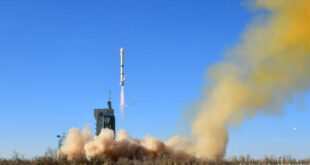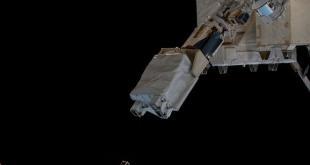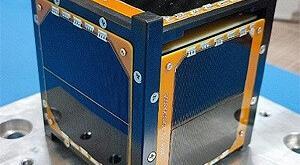SpaceWatch.Global asked its staff and contributors to review 2019 and provide an outlook into 2020. These personal reviews are being published during the holiday season. This is Carla Sharpe of South African Radio Astronomy Observatory.
by Carla Sharpe
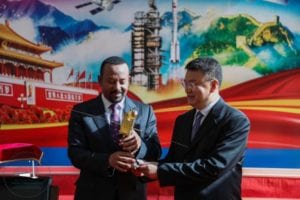
National governments require significant amounts of information in order to make real time, informed and strategic decisions towards growth, security and risk mitigation. This information can be generated by procurement from external sources, funded research or the understanding of the nation’s geography, biodiversity, financial, population and more, invention through industry and entrepreneurship or fundamental scientific research.
One of the key value propositions of space investment for developing countries is the fast, low cost access to data. In itself there is a value chain for data that is to be developed and understood, whereby information is the product and a contribution to the knowledge economy.
Over the last year, I have heard acknowledgement for the need to acquire and use critical space data echoed across African countries, and it is encouraging that over the next few years, we will see growth in related skills, capacity and access to this data.
Estimates drawn from market analysis in the last year can be seen below, showing the significant annual growth of commercial Earth observation data and value-added processing and services for Africa.
Figure 1: African Earth Observation Data and Value-Added Services Revenues
Now that the barriers to space exploration are being lowered, it is giving more countries access to space. CubeSats are enabling developing nations in Africa to have their own access to independent space infrastructure, in order to acquire data for environmental monitoring, weather forecasting, crop monitoring and more.
Small satellites are the emerging class of spacecraft that incorporate recent software and hardware improvements, as well as the benefits from the resulting high capability that is feasible in smaller packages. CubeSats have the additional benefit of a standardized form-factor and containerization, enabling mass production and easier launch vehicle integration, further lowering the cost.
The expendability, faster refresh, and simultaneous deployment in large numbers of these satellites, enables greater risk-taking, experimentation, and creation of new applications not feasible with larger satellites.
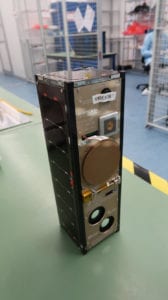
On the 20th December 2019, we saw the launch of Ethiopia’s 70kg multi-spectral Earth observation satellite that will provide data for Ethiopian authorities and research institutions to monitor the environment and study weather patterns for better agricultural planning, early warning for drought, mining activities and forestry management. The satellite was developed by the China Academy of Space Technology (CAST), in collaboration with 21 Ethiopian scientists, trained on the project as part of the technology-transfer agreement between Beijing and the Ethiopian Space Science Technology Institute (ESSTI).
This programme is one of several over the last few years, whereby African countries are developing the capacity towards building small Earth observation satellites in order to develop human capacity and independent situational awareness.
In 2020, Mauritius intends to launch its first CubeSat platform to further develop knowledge and capacity in satellite technology, and in the collection and processing of land and ocean data from space. The satellite project is being funded by the Mauritius government through the Mauritius Research and Innovation Council, initiated by their success in the KiboCUBE programme.
The KiboCUBE programme was launched in 2015 by UNOOSA and JAXA to offer educational and research institutions from developing countries the opportunity to develop cube satellites (CubeSats) for deployment from the International Space Station (ISS).
Kenya was the first winner of the KiboCube initiative which enabled the country to launch its first satellite in 2018, the University of Nairobi, satellite 1KUNS-PF was launched from the Japanese module of the International Space Station.
Ghana also launch its first CubeSat from the International Space Station in June 2017, it was designed and built in two years in conjunction with the Kyushu Institute of Technology’s Birds-1 program.
South Africa launched ZACUBE-1 on the 21 November 2013, and ZACube-2 was successfully launched on the 27 December 2018 as technology demonstrators with programmes including significant human capital development.
Though these previous developments are positive, over the next decade, it is my opinion that African countries should focus on collaborative programmes whereby an African space value chain can be developed, reducing duplication and allowing for sustainable growth in this sector.
African countries have been seen to develop many space related programmes, independently as well as participating in projects based on partnerships with external experts and funding.
There are however few examples of space projects involving partnership between African countries. It is my hope that the next decade will show the development of significant inter-African space collaboration.
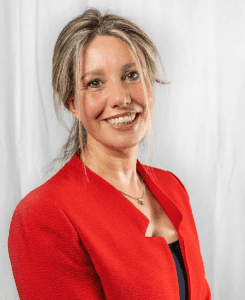
Bio: Carla Sharpe is passionate about the development of space science and technology in Africa, towards positively impacting the lives of all Africans. She has been with the South African Square Kilometre Array (SKA) project for several years. The SKA is an international effort to build the world’s largest radio telescope, with eventually over a square kilometre of collecting area, and the sheer scale of the SKA represents a huge leap forward in both engineering, technology and research & development. In 2009 Carla founded the Foundation for Space Development and in 2011, Women in Aerospace Africa. Her personal passion project was announced in 2014, Africa2Moon, a low cost solution to performing radio astronomy on the far side of the Moon. It has developed into a beacon project to highlight the potential and ability of developing nations, in particular the African community, and to inspire Africa to “Reach for the Moon” by reaching for the Moon!



